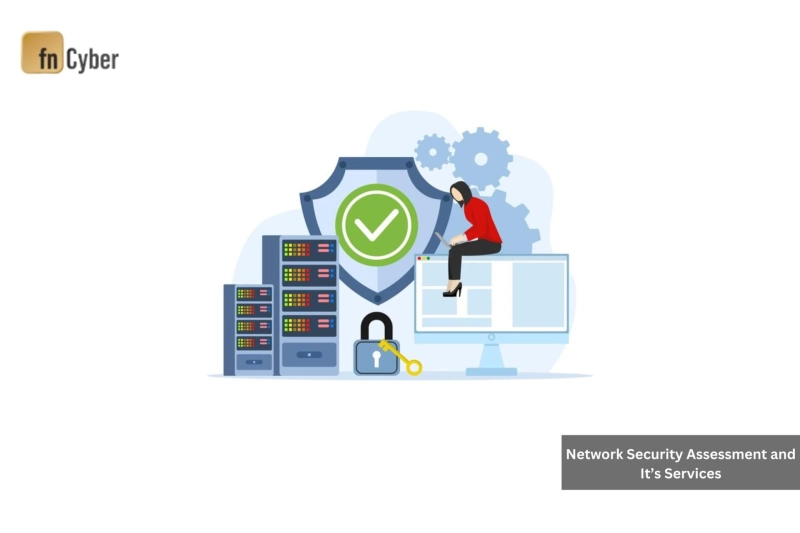In today's interconnected digital landscape, ensuring the security of networks is paramount. Organizations face constant threats from cybercriminals seeking to exploit vulnerabilities for malicious intent. To combat these threats effectively, companies rely on network security assessment services. This comprehensive article navigates through the intricate domain of network security assessment, elucidating its methodologies, importance, and impact.
Understanding Network Security Assessment Service
Defining Network Security Assessment: Network security assessment encompasses a systematic evaluation of an organization's IT infrastructure to identify vulnerabilities, assess security posture, and recommend remedial measures. It involves a meticulous examination of network components, protocols, configurations, and policies to detect potential risks and mitigate them proactively.Importance of Security Assessment: Security Assessments is indispensable for preempting cyber threats and fortifying defenses against evolving attack vectors. By conducting regular assessments, organizations can bolster their resilience to cyber attacks, enhance regulatory compliance, and safeguard sensitive data from unauthorized access or exfiltration.
Exploring Methodologies of Network Security Assessment
Vulnerability Scanning: Vulnerability scanning is a fundamental aspect of network security assessment, involving the automated discovery of weaknesses within a network. Specialized tools are utilized to scan network assets, identify vulnerabilities in software or configurations, and prioritize remediation efforts based on severity ratings.
2.Penetration Testing: Penetration testing, commonly known as pen testing, simulates real-world cyber attacks to evaluate the efficacy of existing security controls. Ethical hackers emulate the tactics of malicious actors to exploit vulnerabilities, infiltrate systems, and assess the organization's readiness to withstand cyber threats.
Significance in Ensuring Cyber Resilience: Network security assessment plays a pivotal role in fortifying an organization's cyber resilience framework. By proactively identifying vulnerabilities and addressing security gaps, businesses can mitigate the risk of data breaches, financial losses, and reputational damage.
Leveraging Network Security Assessment Services
Comprehensive Risk Assessment: Engaging proficient network security assessment services facilitates comprehensive risk assessment, encompassing internal and external threats, compliance requirements, and industry best practices. Experienced cybersecurity professionals conduct in-depth analyses to identify vulnerabilities, assess associated risks, and devise tailored mitigation strategies.Proactive Threat Mitigation: Timely detection and mitigation of security vulnerabilities are imperative for preempting potential cyber threats. Network security assessment services offer proactive threat mitigation strategies, including patch management, security policy enforcement, and employee training initiatives to bolster cyber defenses effectively.
Collaborating with Cybersecurity Experts: Partnering with seasoned cybersecurity experts empowers organizations to navigate the complex landscape of network security assessment with confidence. These professionals bring invaluable expertise, cutting-edge tools, and industry insights to the table, enabling businesses to adopt a proactive stance against cyber threats.
Frequently Asked Questions (FAQs)
Q: What are the primary objectives of network security assessment?
A: Network security assessment aims to identify vulnerabilities, assess security posture, and recommend remedial measures to mitigate risks effectively.
Q: How often should organizations conduct network security assessments?
A: It is advisable for organizations to conduct network security assessments regularly, preferably quarterly or bi-annually, to stay abreast of evolving cyber threats and maintain robust defenses.
Q: What role does compliance play in network security assessment?
A: Compliance with regulatory standards and industry mandates is integral to network security assessment, ensuring adherence to prescribed security protocols and safeguarding sensitive data from unauthorized access or breaches.
Q: Can network security assessment services be tailored to specific industry verticals?
A: Yes, network security assessment services can be customized to align with the unique security requirements and regulatory mandates of diverse industry verticals, including healthcare, finance, and retail.
Q: How do penetration testing and vulnerability scanning differ?
A: While vulnerability scanning focuses on identifying weaknesses within a network, penetration testing involves simulating real-world cyber attacks to evaluate the effectiveness of existing security controls and incident response mechanisms.
Q: What are the key benefits of engaging cybersecurity experts for network security assessment?
A: Cybersecurity experts bring specialized expertise, cutting-edge tools, and industry insights to the table, enabling organizations to conduct comprehensive risk assessments, proactively mitigate threats, and fortify their cyber resilience framework.
Conclusion
In conclusion, network security assessment is indispensable for organizations seeking to fortify their cyber defenses, mitigate vulnerabilities, and safeguard digital assets from emerging cyber threats. By leveraging the expertise of cybersecurity professionals and adopting a proactive stance towards security, businesses can navigate the evolving threat landscape with confidence and resilience.


